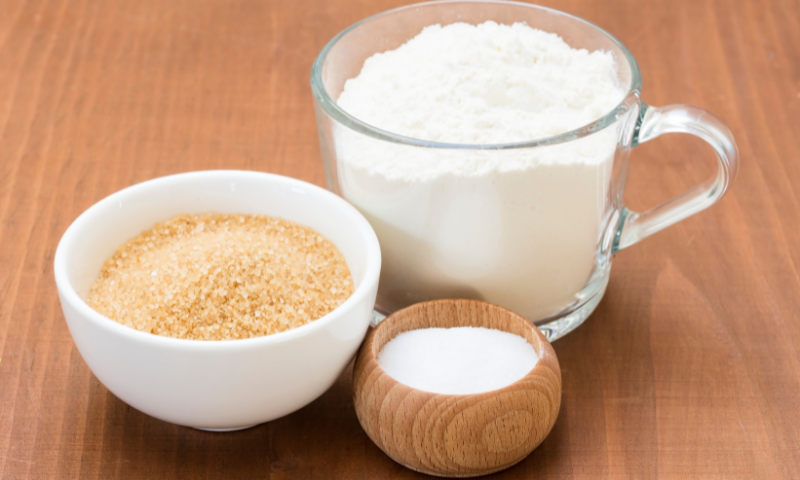Are you ever puzzled by all the different types of sugar available and which one is the healthiest choice? Look no further! In this blog post, we’ll guide you through various types of sugar and help you understand the differences between them.
White Granulated Sugar
The most common sugar is white granulated sugar. It is extracted from sugar cane or sugar beet and is the go-to choice for many households worldwide. However, it has a high glycemic index which causes quick spikes in blood sugar levels that can lead to energy crashes.
If you want to cut down on white granulated sugar, here are some tips:
- Try natural sweeteners like honey or maple syrup instead.
- Gradually reduce the amount of sugar you add to your drinks or recipes.
- Read food labels carefully and choose products with less sugar.
- Experiment with spices like cinnamon or vanilla to add flavor without using sugar.
- Choose fresh fruits as a naturally sweet alternative to sugary snacks.
Brown Sugar
Brown sugar is often seen as a healthier choice than white sugar because many people mistakenly assume the color brown to be healthier. Take eggs for example. Did you know that the only difference between white and brown eggs is the color of the chicken that laid them? Brown does not always mean better for nutrition. Brown sugar is made by adding molasses to white sugar, giving it a caramel-like flavor. While it’s less processed than white sugar, it has the same impact on your health and the same number of calories, so moderation is important.
Raw Sugar
Raw sugar, also known as turbinado sugar, is minimally processed and has a hint of molasses, which gives it a mild caramel flavor. However, its nutritional content is almost the same as white sugar. Consuming raw sugar in moderation is crucial because it can lead to weight gain and tooth decay. Use raw sugar sparingly, like as a crunchy topping for baked goods.
Honey
Lastly, there’s honey, the sweet gold liquid produced by bees. Honey is often considered a healthier option due to its natural properties and its ability to help with allergies and coughs. However, honey is still high in calories and can lead to weight gain if overconsumed. Honey has more calories per tablespoon than white granulated sugar, but because it’s sweeter, many people use less of it. It’s not just about sweetness; honey adds a complex flavor profile with subtle floral, fruity, or even smoky undertones depending on where it comes from. The unique combination of fructose and glucose in honey provides a slower, steadier energy release compared to sugar, which may help reduce rapid spikes and crashes in blood sugar levels.
Here are ideas for using honey instead of white granulated sugar in recipes:
- Baking: Replace white sugar with honey in recipes like cookies, cakes and muffins. It adds moisture and a subtle floral flavor. Use 1/2 to 2/3 cup of honey for every cup of white granulated sugar.
- Beverages: Sweeten your tea, coffee or smoothies with honey for a natural and flavorful alternative.
- Sauces and dressings: Substitute white sugar with honey in homemade sauces and dressings for a touch of sweetness and depth of flavor.
- Breakfast: Drizzle honey on your oatmeal, yogurt or pancakes instead of using white sugar for a healthier and more natural option.
- Snacks: Swap out white sugar in snack recipes, such as energy balls or granola bars, with honey for a nutritious and delicious alternative.
By understanding the different types of sugar and their characteristics, you can make informed choices about your diet. Remember to read labels, choose natural and unprocessed sugars, and enjoy sweets in moderation. Your body and taste buds will thank you for it! Don’t hesitate to experiment with new alternatives and enjoy the sweetness of life!
For more information on sugar and nutrition, read “The Ins and Outs of Sugar: Natural Vs Added, Substitutes and More.”






